Joined 8 Jan 2024
Categories
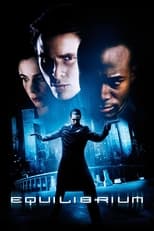
In Kurt Wimmer's "Equilibrium," Christian Bale takes on the role of John Preston, a law enforcement officer in a future society that eradicates emotions to maintain societal peace. The film, set against a visually striking totalitarian backdrop, explores the consequences of suppressing human sentiment.
Visually, "Equilibrium" is a feast for the eyes, with its choreographed gun-kata sequences and a cold, monochromatic aesthetic that mirrors the emotional sterility of the dystopian world. The film's commitment to a unique visual style is commendable, creating an immersive atmosphere that stands out in the cyberpunk landscape.
However, the film's conceptual framework struggles under scrutiny. The narrative, while engaging in its action sequences, leans heavily on borrowed elements from other dystopian tales, lacking the originality needed to make a lasting impact. The exploration of emotional suppression, a core theme, feels oversimplified and fails to delve into the intricacies of human psychology.
Christian Bale's performance adds gravitas to the film, but the characters around him suffer from underdevelopment, making it challenging to invest emotionally in their fates. The plot, despite moments of tension, follows a predictable trajectory, diminishing the impact of its twists and turns.
"Equilibrium" is a visually arresting entry into the cyberpunk genre, but its conceptual flaws prevent it from ascending to the heights of genre-defining classics. While its unique style and action sequences may captivate, the film ultimately leaves audiences yearning for a more nuanced exploration of its intriguing thematic premise.

Johnny Mnemonic attempts to ride the cyberpunk wave with Keanu Reeves in the titular role, a data courier with a brain implant storing sensitive information. Directed by Robert Longo and based on William Gibson's short story, the film unfolds in a high-tech, low-life world where data is the ultimate currency.
While the film exhibits cyberpunk aesthetics and a gritty atmosphere, it falters in execution. The narrative often succumbs to a disjointed and confusing progression, failing to harness the potential of Gibson's source material. The storytelling, weighed down by convoluted exposition, struggles to convey the complexity of the cybernetic world it seeks to explore.
Keanu Reeves, typically charismatic, finds himself constrained by a script that doesn't allow his character to fully evolve beyond a stereotypical cyberpunk archetype. Supporting performances, including Ice-T and Dolph Lundgren, fall victim to one-dimensional characterizations that hinder the film's depth.
The visual representation of cyberspace and the virtual realm feels outdated, even by 1995 standards, lacking the immersive quality needed to transport audiences into the film's digital landscapes. The CGI, while ambitious for its time, now comes across as more kitschy than cutting-edge.
"Johnny Mnemonic" stands as a missed opportunity in the cyberpunk genre. Its potential for exploring the perils of information overload and the fusion of technology with the human mind is overshadowed by a cluttered narrative and dated visual effects. While it may appeal to hardcore cyberpunk enthusiasts, its shortcomings prevent it from achieving the iconic status of other genre classics.

Bong Joon-ho's "Snowpiercer" emerges as a visually striking and socially poignant exploration of a post-apocalyptic world hurtling forward on a perpetually moving train. The film masterfully crafts a dystopian society divided by class, with the tail-end passengers living in squalor while the elite enjoy opulence at the front.
Chris Evans leads a desperate rebellion, injecting the film with raw intensity and an undercurrent of social justice. The relentless forward momentum of the train becomes a metaphor for the ever-present struggle for survival and progress in a world teetering on the edge of extinction.
The cinematography deserves special mention, with each train compartment serving as a microcosm of societal struggles. From the grimy, dimly lit tail-end to the decadent extravagance of the front, the visuals are both evocative and thought-provoking.
However, the film is not without its challenges. Some narrative choices may feel heavy-handed in their metaphorical approach, occasionally sacrificing subtlety for the sake of allegory. The pacing, while generally brisk, can falter in certain stretches, impacting the overall rhythm of the narrative.
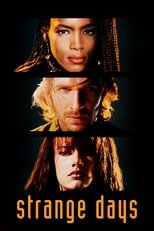
"Strange Days" attempts to navigate the murky waters of cyberpunk noir with its futuristic vision of Los Angeles. While the film presents a visually engaging and stylistically charged narrative, it falls short of fully realizing its potential. The incorporation of virtual reality as a central theme feels at times forced, with the execution failing to deliver the immersive experience one might expect.
The film's social commentary, although ambitious, lacks subtlety, hitting viewers over the head with its messages about racism and police brutality. Ralph Fiennes's performance as Lenny Nero, while commendable, can't entirely salvage the film from its narrative missteps.
Despite its flaws, "Strange Days" remains an interesting addition to the cyberpunk genre, offering a unique take on the intersection of technology and society. However, the film's uneven execution leaves it teetering between moments of brilliance and missed opportunities.
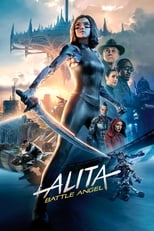
Alita brings Yukito Kishiro's manga to life with stunning CGI and Rosa Salazar's compelling performance as the titular cyborg. The film's kinetic action sequences and exploration of identity in a cyber-enhanced world make it a visually arresting addition to the cyberpunk canon.
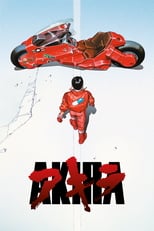
This movie is a cyberpunk anime masterpiece that dives into post-apocalyptic Neo-Tokyo. With visceral animation, political intrigue, and psychic powers, it's a frenetic exploration of power, rebellion, and the consequences of unchecked technological advancement

Ghost in the Shell blends breathtaking animation with thought-provoking themes, exploring the essence of humanity in a world dominated by cybernetic enhancements. This anime classic raises profound questions about consciousness and the impact of technology on the human soul.
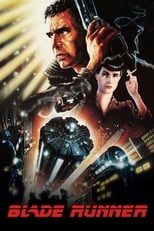
This movie is a cyberpunk landmark that immerses audiences in a visually stunning, rain-soaked dystopian future. Harrison Ford's portrayal of Rick Deckard and the film's philosophical exploration of humanity, set against Vangelis's haunting score, cements its status as a genre-defining masterpiece.

Michael Curtiz's "Casablanca" remains an unparalleled classic, weaving a tale of romance, sacrifice, and political intrigue against the backdrop of World War II. Humphrey Bogart's portrayal of Rick Blaine and Ingrid Bergman's Ilsa Lund creates an iconic cinematic couple. The film's memorable quotes, stunning cinematography, and Max Steiner's evocative score contribute to its enduring status as a cinematic masterpiece. "Casablanca" is a timeless journey through the complexities of love and duty, making it an essential watch for film enthusiasts across generations.
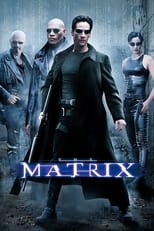
"The Matrix" redefined action cinema with its groundbreaking visual effects, martial arts choreography, and a mind-bending storyline. Keanu Reeves's portrayal of Neo, alongside Laurence Fishburne's Morpheus and Carrie-Anne Moss's Trinity, thrusts viewers into a dystopian world where reality is not as it seems. "The Matrix" remains a sci-fi classic that continues to influence and shape the genre.

